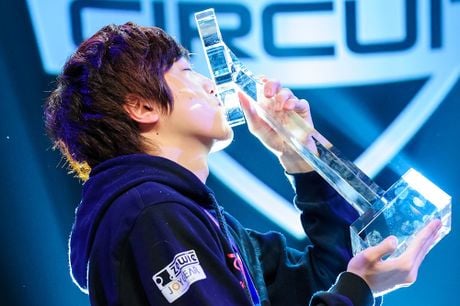E-Sports Integrity Coalition Promises to Clean Up Competitive Gaming
Posted on: July 6, 2016, 02:45h.
Last updated on: October 12, 2016, 08:42h.

The E-sports Integrity Coalition (ESIC) launched in the UK this week, a non-profit industry body with one dedicated mission: keeping E-sports clean.
ESIC said it aims to become recognized “the guardian of the integrity of E-Sports,” with a particular emphasis on cheating, match-fixing and gray market gambling in competitive video gaming.
“The Coalition will take responsibility for all forms of the process, including drawing up rules, investigating breaches and then prosecuting those who flout them, while also working to prevent such instances arising in the first place,” explained ESIC in a press release.
“To this end, ESIC is working with key stakeholders in the E-Sports community, from developers, publishers and players to broadcasters, betting associations and league owners, to create a unified vision for what the rules should be, and how they should be implemented.”
E-Sports Scandals
The formation of the group is timely. As we reported yesterday, E-Sports finds itself in the midst of another scandal, as two prominent YouTubers are accused of failing to disclose the ownership of a Counter-Strike: Global Offensive skins gambling site that they regularly promoted to their millions of viewers.
CS: GO gambling sites themselves have been criticized for allegedly facilitating unregulated underage gambling, and CS: GO developer Valve is currently the subject of a lawsuit in the US, which accuses the company of “sustaining and facilitating” the market in skins betting.
E-Sports is no stranger to match-fixing scandals either. In January, the 2014 Starcraft II world champion and 2015 runner-up Lee “Life” Seung Hyun was arrested by Korean authorities for allegedly throwing matches to benefit an illegal gambling syndicate.
Organized Crime Moves In
E-Sports is vulnerable to match-fixing because of the relatively low prize money available to its elite players in comparison with other professional athletes, which means that players can easily be bought for higher sums than the prize money they’re playing for. Also, because the payouts in E-Sports tournaments are usually top heavy, the system encourages players to cheat as a way of mitigating risk.
“We’ve had very prominent arrests in Korea in Starcraft II, and there have been a number of other cases and allegations […] around fixing,” Ian Smith, ESIC’s very first commissioner, told Wired this week.
“We’ve found that that’s actually pretty low-level fixing, but the main issue is the growth of the E-Sports betting market. Looking at 2015, the legitimate E-Sports betting market was at around the $250m mark. That probably means the illegitimate market […] was running at around two to three billion dollars.”
“That’s the point at which organised crime knows that there’s a decent return on any corrupt investment they make in the sport,” he said.
No comments yet